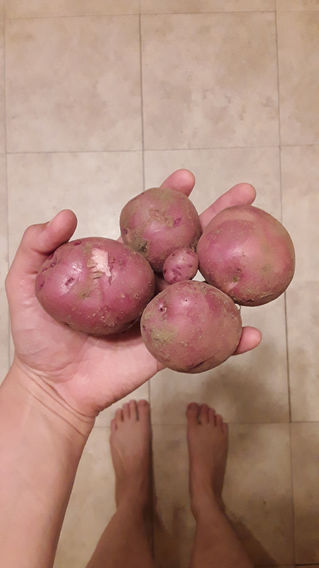
Humble Beginnings
I was raised on a dairy farm in Allegany County, NY. The cows were my friends, as were the goslings, barn cats, and trusty canine companions.
I feel so fortunate to have grown up with room to roam, in a place where I developed a reverence for life and death, a place where we whistled and sang while we worked and where the noise of the modern world was distant and muffled.
As a young adult, I studied Liberal Arts with a concentration in agriculture at Alfred State College, started a farmers market in Canaseraga, worked for my parents and other farmers throughout Allegany County, and had a flock of sheep that I grazed around the neighborhood and on my parents' land. I sold my sheep in 2016 but remained active in the agriculture community. I provided respite to farmers, looking after their farms and their families while they took a break from the farm.
Coming of Age in Rural America
Knowing firsthand and secondhand about the joys and challenges of farming, I returned to college and studied intergenerational farm transitions and aging in rural areas. I came to better understand the complex dynamics that impact rural communities. Upon graduating with a B.S. in Aging Studies, I worked for two and a half years in a rural community, serving as a care manager for older adults aging-in-place, deepening my fondness for rural folks and our incredibly resourceful and adaptive way of life, and learning what resources exist to promote rural resilience.
Studying Rural America from
a Global Perspective
It's been eight years since I've had sheep of my own, and I feel like, in their absence, a part of me is missing. I plan to start a flock of sheep in 2025 and offer contract grazing to nearby livestock owners. The number of sheep I keep will depend on how much land we are managing for the year, how much land and water we have access to in the coming years, what other things I am juggling in my life at the time, what income streams I have, as I know it's best for the animals, land, water, my family, my community, and me when we can achieve a healthy balance, refresh each other rather than deplete each other.
You can take the girl off the farm, but you can't take the farm out of the girl.
I moved in with my boyfriend in April 2024, out of my apartment and into his house that sits on one acre of land in the heart of NYS apple country. In Fall 2023, we built compost from leaf litter, lawn clippings, and discarded pumpkins from someone's curb. In addition to the pumpkins that volunteered to grow the following spring, I planted, tended, and harvested broccoli, snow peas, radishes, beets, strawberries, greens, green beans, corn, raspberries, blueberries, potatoes, and cucumbers, some for our home, some for our neighbors, and some for chickens. The leaf litter, and the shade from the sprawling pumpkins, helped the soil retain water throughout the growing season. Watering was only required at time of seeding and transplanting.
We inherited 2 chickens in May from our neighbors who were tired of keeping chickens. Throughout the season, each chicken consistently laid an average of 0.75-1 egg/day, and this continues as we approach the shortest day of the year. My boyfriend and I built a chicken tractor. I built the frame out of PVC and cattle panels, and he 3D-printed some wheel mounts and installed two wheels so I could move the chicken tractor daily. We've got plans to improve the design for future use, drawing inspiration from Joel Salatin and Justin Rhodes.
In September-October 2024, I acquired some meat rabbits -- a breeding trio of Champagne de Argents and two breeding pairs that were mixes of Californian, Rex, and New Zealand -- made rabbit stew in November, and I am expecting 1-2 litters before the year's end. The chickens are now spending their days with the rabbits. Together, they're making compost, which helps keep the rabbitry warm and fresh throughout the winter. We're hoping to buy a couple more hens, and maybe a rooster, from a neighbor with State Champion chickens this fall, to help maintain adequate moisture levels and a carbon:nitrogen ratio that promotes beneficial bacteria and aerobic decomposition of the rabbit/chicken compost.
Back to my roots, back in my boots
Education is an integral part of preserving agricultural knowledge and healing the food system. In honor of those who have taught me or continue to teach me, I want my work to blaze a trail that makes land and animal stewardship opportunities more accessible to people, blaze a trail that inspires and educates generations to come to produce food, fuel, and fiber in a way that can be sustained beyond one person's lifetime. Afterall, our future depends on it.
Since my time on Earth is finite, but I want my resilient food system work to continue, DBA Emma Tyme Music is sponsoring a project that bears a different name but combines all of my interests -- farming & food systems, land stewardship, the arts, people of all ages & abilities -- brought together with the common threads of education and spirituality.










































